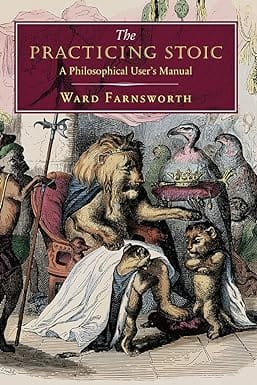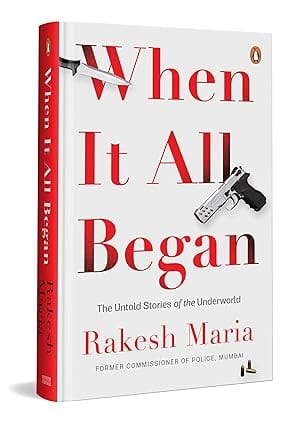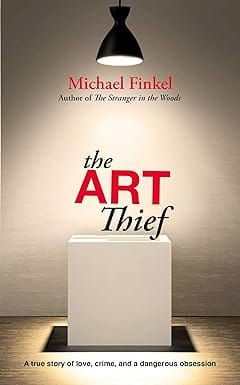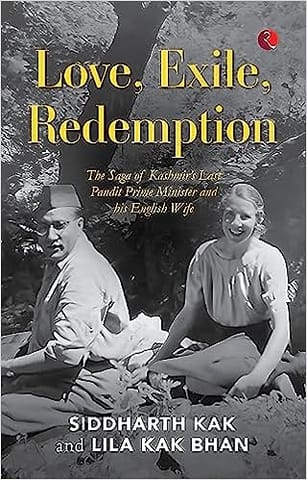- Non-ficton
- Non-ficton
- Contemporary Fiction
- Contemporary Fiction
- Children
- Children
- Comics & Graphic Novels
- Comics & Graphic Novels
- Non-Fiction
- Non-Fiction
- Fiction
- Fiction
Praise for Ward Farnsworth:
The Practicing Stoic: A Philosophical User’s Manual:
“As befits a good Stoic, Farnsworth’s expository prose exhibits both clarity and an unflappable calm… Throughout The Practicing Stoic, Farnsworth beautifully integrates his own observations with scores of quotations from Epictetus, Seneca, Marcus Aurelius, Montaigne and others. As a result, this isn’t just a book to read-it’s a book to return to, a book that will provide perspective and consolation at times of heartbreak or calamity.”- Michael Dirda, The Washington Post
“It is reported that upon Seneca’s tomb are written the words, Who’s Minding the Stoa? He would be pleased to know the answer is Ward Farnsworth.”-David Mamet
“This is a book any thoughtful person will be glad to have along as a companion for an extended weekend or, indeed, for that protracted journey we call life.”-The New Criterion
“This sturdy and engaging introductory text consists mostly of excerpts from the ancient Greek and Roman Stoic philosophers, especially Seneca, Epictetus through his student Arrian, and Marcus Aurelius as well as that trio’s philosophical confreres, from the earlier Hellenic Stoics and Cicero to such contemporaries as Plutarch to moderns, including Montaigne, Adam Smith, and Schopenhauer… A philosophy to live by, Stoicism may remind many of Buddhism and Quakerism, for it asks of practitioners something very similar to what those disciplines call mindfulness.”-Booklist
Farnsworth’s Classical English Style:
“Mr. Farnsworth has written an original and absorbing guide to English style. Get it if you can.”-Wall Street Journal
“For writers aspiring to master the craft, Farnsworth shows how it’s done. For lovers of language, he provides waves of sheer pleasure.”-Steven Pinker
“An eloquent study of the very mechanisms of eloquence.”-Henry Hitchings
“A great and edifying pleasure.”-Mark Helprin
“A storehouse of effective writing, showing the techniques you may freely adapt to make music of your own.” -The Baltimore Sun
Farnsworth’s Classical English Rhetoric:
“I must refrain from shouting what a brilliant work this is (præteritio). Farnsworth has written the book as he ought to have written it – and as only he could have written it (symploce). Buy it and read it – buy it and read it (epimone).”-Bryan A. Garner, Garner’s Modern English Usage
“The most immediate pleasure of this book is that it heightens one’s appreciation of the craft of great writers and speakers. Mr. Farnsworth includes numerous examples from Shakespeare and Dickens, Thoreau and Emerson, Winston Churchill and Abraham Lincoln. He also seems keen to rehabilitate writers and speakers whose rhetorical artistry is undervalued; besides his liking for Chesterton, he shows deep admiration for the Irish statesman Henry Grattan (1746-1820), whose studied repetition of a word (‘No lawyer can say so; because no lawyer could say so without forfeiting his character as a lawyer’) is an instance, we are told, of conduplicatio. But more than anything Mr. Farnsworth wants to restore the reputation of rhetorical artistry per se, and the result is a handsome work of reference.”-Henry Hitchings, Wall Street Journal
From the Back Cover
This is a book about human nature and its management. The wisest students of that subject in ancient times, and perhaps of all time, were known as the Stoics. Their recommendations about how to think and live do not resemble the grim lack of feeling we associate with the word “Stoic” in English today. The original Stoics were philosophers and psychologists of the most ingenious kind, and also highly practical; they offered solutions to the problems of everyday life, and advice about how to overcome our irrationalities, that are still relevant and helpful now.
- Home
- Non-Fiction
- True Accounts
- The Practicing Stoic A Philosophical Users Manual
The Practicing Stoic A Philosophical Users Manual
SIZE GUIDE
- ISBN: 9781567926118
- Author: Ward Farnsworth
- Publisher: David R Godine
- Pages: 256
- Format: Hardback
Book Description
Praise for Ward Farnsworth:
The Practicing Stoic: A Philosophical User’s Manual:
“As befits a good Stoic, Farnsworth’s expository prose exhibits both clarity and an unflappable calm… Throughout The Practicing Stoic, Farnsworth beautifully integrates his own observations with scores of quotations from Epictetus, Seneca, Marcus Aurelius, Montaigne and others. As a result, this isn’t just a book to read-it’s a book to return to, a book that will provide perspective and consolation at times of heartbreak or calamity.”- Michael Dirda, The Washington Post
“It is reported that upon Seneca’s tomb are written the words, Who’s Minding the Stoa? He would be pleased to know the answer is Ward Farnsworth.”-David Mamet
“This is a book any thoughtful person will be glad to have along as a companion for an extended weekend or, indeed, for that protracted journey we call life.”-The New Criterion
“This sturdy and engaging introductory text consists mostly of excerpts from the ancient Greek and Roman Stoic philosophers, especially Seneca, Epictetus through his student Arrian, and Marcus Aurelius as well as that trio’s philosophical confreres, from the earlier Hellenic Stoics and Cicero to such contemporaries as Plutarch to moderns, including Montaigne, Adam Smith, and Schopenhauer… A philosophy to live by, Stoicism may remind many of Buddhism and Quakerism, for it asks of practitioners something very similar to what those disciplines call mindfulness.”-Booklist
Farnsworth’s Classical English Style:
“Mr. Farnsworth has written an original and absorbing guide to English style. Get it if you can.”-Wall Street Journal
“For writers aspiring to master the craft, Farnsworth shows how it’s done. For lovers of language, he provides waves of sheer pleasure.”-Steven Pinker
“An eloquent study of the very mechanisms of eloquence.”-Henry Hitchings
“A great and edifying pleasure.”-Mark Helprin
“A storehouse of effective writing, showing the techniques you may freely adapt to make music of your own.” -The Baltimore Sun
Farnsworth’s Classical English Rhetoric:
“I must refrain from shouting what a brilliant work this is (præteritio). Farnsworth has written the book as he ought to have written it – and as only he could have written it (symploce). Buy it and read it – buy it and read it (epimone).”-Bryan A. Garner, Garner’s Modern English Usage
“The most immediate pleasure of this book is that it heightens one’s appreciation of the craft of great writers and speakers. Mr. Farnsworth includes numerous examples from Shakespeare and Dickens, Thoreau and Emerson, Winston Churchill and Abraham Lincoln. He also seems keen to rehabilitate writers and speakers whose rhetorical artistry is undervalued; besides his liking for Chesterton, he shows deep admiration for the Irish statesman Henry Grattan (1746-1820), whose studied repetition of a word (‘No lawyer can say so; because no lawyer could say so without forfeiting his character as a lawyer’) is an instance, we are told, of conduplicatio. But more than anything Mr. Farnsworth wants to restore the reputation of rhetorical artistry per se, and the result is a handsome work of reference.”-Henry Hitchings, Wall Street Journal
From the Back Cover
This is a book about human nature and its management. The wisest students of that subject in ancient times, and perhaps of all time, were known as the Stoics. Their recommendations about how to think and live do not resemble the grim lack of feeling we associate with the word “Stoic” in English today. The original Stoics were philosophers and psychologists of the most ingenious kind, and also highly practical; they offered solutions to the problems of everyday life, and advice about how to overcome our irrationalities, that are still relevant and helpful now.
User reviews
NEWSLETTER
Subscribe to get Email Updates!
Thanks for subscribing.
Your response has been recorded.

India's Iconic & Independent Book Store offering a vast selection of books across a variety of genres Since 1978.
"We Believe In The Power of Books" Our mission is to make books accessible to everyone, and to cultivate a culture of reading and learning. We strive to provide a wide range of books, from classic literature, sci-fi and fantasy, to graphic novels, biographies and self-help books, so that everyone can find something to read.
Whether you’re looking for your next great read, a gift for someone special, or just browsing, Midland is here to make your book-buying experience easy and enjoyable.
We are shipping pan India and across the world.
For Bulk Order / Corporate Gifting
 +91 9818282497 |
+91 9818282497 |  [email protected]
[email protected]
Click To Know More
QUICK LINKS
ADDRESS
Shop No.20, Aurobindo Palace Market, Near Church, New Delhi













